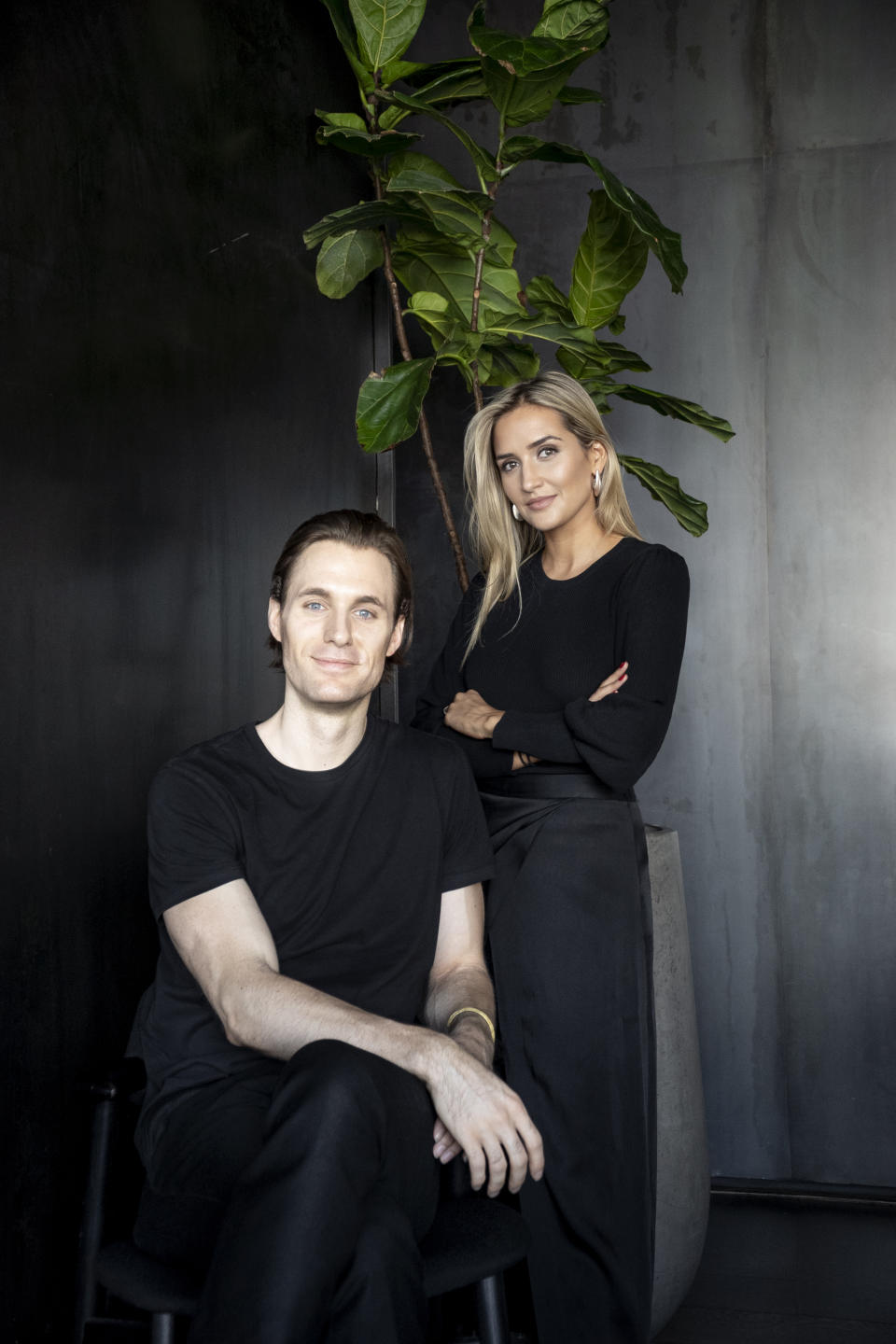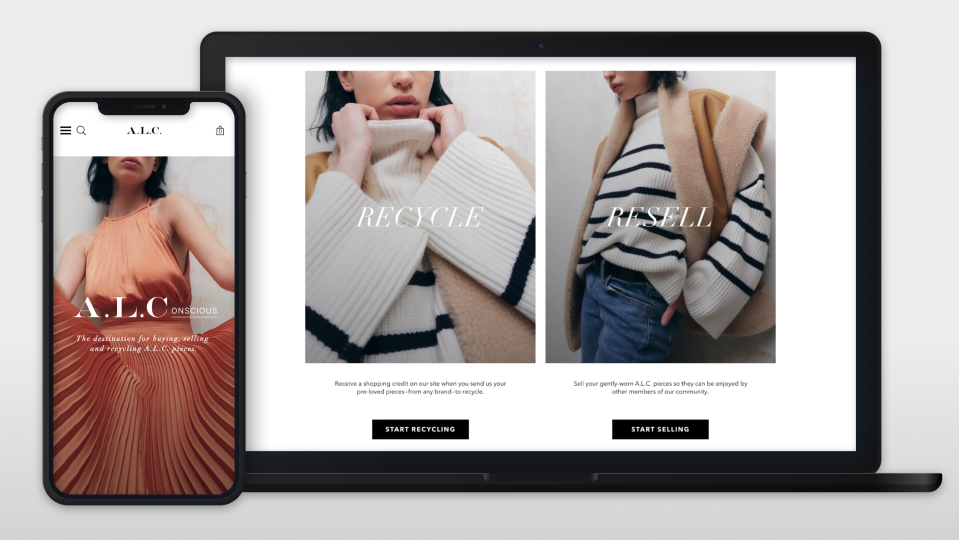Reformation Partner SuperCircle Scores $7 Million

SuperCircle raised a $7 million pre-Series A financing round, co-led by Radicle Impact and Ulu Ventures. Other investors backing the textile recycling startup include Earthshot Ventures, BBG Ventures, Lyra Ventures and Blueprint Ventures.
It’s a key milestone in a journey that began when co-founders Stuart Ahlum and Chloe Songer met about a decade ago while working in China. Songer was engaged with Alexander Wang, and Ahlum worked with startup and footwear teams.
More from Sourcing Journal
Sequoia-Backed Fast-Fashion E-tailer Urbanic Raises $150 Million
This One Program Helps the Planet and Brings Consumers to Your Store
Virtual Try-on Startup Zelig Scores $15M, Eyes Personalized Marketing
Both early in their careers, they quickly began to understand the intricacies of the supply chain in fashion, apparel and footwear. That, Ahlum said, ignited their mutual obsession with remaking fashion supply chains in sustainability’s image.
Eventually Songer and Ahlum turned their circular ambition into SuperCircle, a textile and footwear recycling platform that handles both reverse logistics and waste management on behalf of fashion and home textile brands such as Parachute. That includes unwanted post-consumer clothing, shoes and bedding as well as “excess inventory, damages, samples—you name it,” Songer said.
Ahlum said the two wanted to fill a yawning gap in an industry dominated by the linear take-make-waste model of yesteryear. He credits popular 2030 sustainability targets for being a “catalyst” behind rising brand interest in what SuperCircle has to offer.
“The thought process was, we’re seeing a lot of material science and material R&D and sustainability improvements happening on the front of the supply chain, which is amazing. But does it really matter if everything goes to landfill anyway?” said Ahlum, who serves as SuperCircle’s chief operating officer.
As fashion, apparel and footwear brands hurry to burnish their environmental bona fides, pouring resources into the Reformation partner marks a sensible investment, said Kathy Chen, partner at Ulu Ventures.
“SuperCircle is the connective tissue that links consumers, retailers, logistic providers and recyclers, coordinating the entire process, end to end. With tremendous buy-in from the retail industry, we now have the momentum to make circularity a reality,” Chen said.

Ahlum and Songer also tag-teamed when birthing Thousand Fell, a biodegradable and recyclable footwear brand designed for disassembly.
Brands and retailers can work with SuperCircle to stand up post-consumer recycling programs, but Songer, its CEO, said the company can also handle waste directly from brands.
“We partner with [brands] anywhere in the supply chain where there’s damages or excess that normally is incinerated or sent abroad to [places] like Africa or India,” she said. “We… take it back and get it into a recycling feed domestically.”
This is what differentiates SuperCircle from other recycling players in the market: Mara Hoffman partner, Circ, also recycles textiles—but it primarily deals with post-industrial waste, not end-of-life textiles from consumers.
The garments and goods returned to SuperCircle churn through a recycling process that spits them out into clean fibers ready for new use.
The A.L.C. partner has also unveiled unique arrangements for its clients. In October, it launched A.L.Conscious with the New York-based luxury brand, in partnership with Archive, a resale technology provider. This way, consumers can choose whether they want to resell pre-owned garments or recycle them for A.L.C. credit.
A.L.C. incentivizes consumers to return products bought from its stock, but consumers can also return other brands for a smaller amount of store credit.
Songer said this approach helps get garments in the door.
“I think it’s a huge opportunity [with] A.L.C.—you can use [that store credit] on full-price product or sale product, and just monetize your oldest clothing by earning credits to the brand you love,” she told Sourcing Journal. “We love that, because it’s not just clothes that can be resold—send those things to ThredUp or Archive. Send us your dirty underwear, the leggings that you ripped, you name it, and still get incentivized to do that.”

Though many programs won’t accept intimates because of “bacteria and contamination,” SuperCircle is helping partners such as Knickey, which last month rebranded as Subset with the same GOTS, Oeko-Tex, Fair Trade certifications, streamline take-backs of used drawers and other close-to-skin garments.
The funding raised in the pre-Series A round will go toward several main goals, Songer said: finding partners that are innovating in the material identification space and increasing its warehouse footprint. It also quickly hired a VP of enterprise sales—who, like third co-founder and chief technology officer Phong Nguyen, also graduated from Gilt Groupe—as part of a campaign to increase the 27-person startup’s headcount. A new supply chain operations SVP hired away from eBay’s authentication team adds fresh talent to the core business, with experience at The RealReal as well.
All of these goals will power the Tentree partner‘s scale as it focuses on regionalizing a facility footprint that covers Arizona, Nevada and Texas. It’s eyeing new facilities in California and Colorado as well as a site in the tri-state area, according to Ahlum.
“The thing that’s nice about our process is that volume scales quickly, which is a good thing, but then it also requires the infrastructure to [handle that],” Ahlum said.
Overproduction is just one part of the problem that puts fashion into the SuperCircle recycling system. In fact, many brands start their journey by dispatching items destroyed by moisture and mold, the stuff that has no straightforward solution other than the “trash truck,” Songer said.
So far, SuperCircle has recycled over a million garments. Songer made it clear that she and Ahlum have an ambitious goal in store for the next chapter.
“Right now, we’re recycling about 150,000 garments a month, but we want to bring that up to a million garments a month within the next six months—really quickly,” she told Sourcing Journal, hinting at future partnerships to make textile recycling even more accessible.
And at some point down the line, SuperCircle “theoretically” might be able to set up a process to convert a brand’s waste into materials that go back into its own products for a truly circular system. But for the moment, the focus is on helping brands get into the habit of putting their waste to positive use.
“We are now coaching brands to think about recycled fibers like solar power or solar energy,” Songer said. “You need to help to create new recycled fibers and buy it back from the system. But you don’t necessarily have to have your recycled fiber and your recycled fabric.”

